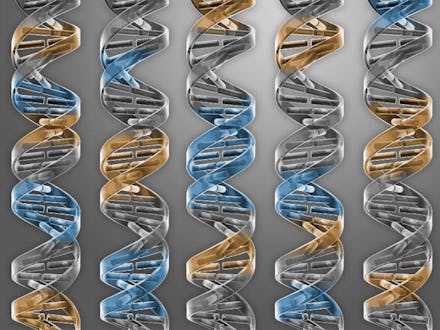Scientists Just Created Synthetic Life With the World's Smallest Genome

Scientists have created a bacterium with the smallest number of genes needed for life. This little lab-built guy is based on a type of Mycoplasma bacteria found in mammals, but it has fewer than 500 genes.
To put that into perspective, humans have about 24,000 genes. Even tiny fruit flies have about 17,000.
Researchers say the technique could be used to engineer organisms capable of cleaning up oil spills and generating biofuels. "It's the start of a new era," researcher Dan Gibson said at a press conference, according to BuzzFeed. "But it won't happen overnight."
Why create it? The researchers who created this genetically tiny organism were trying to understand which genes are essential to life. They used a template of Mycoplasma genes (which includes about 900), then started systematically turning off genes. If the cell survived after a gene was switched off, they knew the gene was not essential to life, so they snipped it out. The experiment left them with 473.
The process got a little complicated because some genes are codependent on others, the researchers said.
It's like an aircraft. "If you know nothing about airplanes and you're looking at a 777 ... and you remove the right wing, the airplane can still fly and land, so you'd say it's not essential, and you don't really discover the essentiality until you remove the second one," Craig Venter, a scientist who worked on the research, told Live Science.
The minimum number would have been different if the researchers had started with anything other than a Mycoplasma bacteria, and the minimum number would change if you wanted the cell to do something other than just exist.
What it could do in the future: Researchers say the technique could allow them to quickly create minimal synthetic organisms capable of eating oil to clean up oil spills and other toxic waste, organisms that generate biofuel and organisms that can act as medicine inside the human body — proving, once and for all, that size isn't everything.
h/t BBC